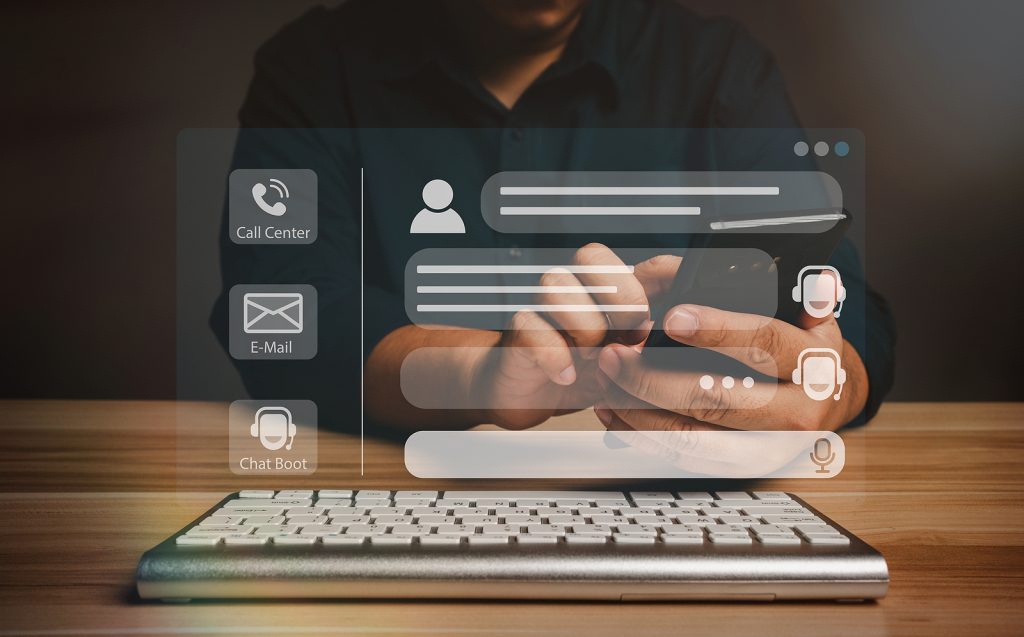
Chatbots are becoming more popular and being used in various ways, including as virtual coaches. However, chatbots could have security and privacy issues that should be considered.
When you chat with a chatbot, the chatbot can access your email address, profile picture, and other personal data. Sometimes, the bots can quote from your email or social media posts. If this data is compromised, it could be used to blackmail or harass you. Furthermore, bots can track your movements and keep track of your conversations for marketing or advertising purposes.
There are several reasons why chatbots should not be used as virtual coaches:
- They can access personal data without permission or disclosure.
- Tracking conversations or movements could lead to privacy violations and harassment.
- Chatbots could be used for marketing or advertising without your consent.
So if you’re considering using chatbots as a virtual coach, it is essential to consider the potential security and privacy risks.
Data Privacy Concerns in Chatbots Coaching
Chatbot coaching has quickly become the go-to method for tailoring your personal experience, but with this convenience comes potential risks. Unauthorized access to data collected by chatbots to provide personalized services can potentially lead to serious issues ranging from identity theft and fraud to privacy breaches. It’s important that we take extra steps towards protecting ourselves, so our valuable information stays safe!
Another concern is that the data collected by chatbots may be used for targeted advertising or other marketing purposes. Users may need to be aware of how their data is being used and may have yet to give consent for it to be used this way. This can be a severe breach of privacy and erode trust between users and coaching providers.
Security Risks in Chatbots Coaching
Chatbot coaching also presents potential security risks. Chatbots may be designed to collect user data that is not encrypted or transmitted over unsecured channels, making it easy for hackers to intercept and steal this data. This can lead to identity theft or other malicious activities. Hackers may also be able to access the chatbot itself, potentially altering its programming or using it as a tool for malicious purposes.
Chatbots may also be vulnerable to attacks from bots themselves. Bots can flood the chatbot with requests, overwhelming it and causing it to crash or become unusable. This can be particularly damaging for users who rely on the chatbot for coaching services.
Lack of Human Oversight in Chatbots Coaching
Chatbot coaching raises concerns about the lack of human oversight. Chatbots are programmed to provide coaching services based on algorithms and data. Still, they may be unable to offer the same insight and empathy as a human coach. This can be particularly problematic for users dealing with complex issues or requiring more personalized coaching services.
Additionally, chatbots may be unable to recognize when a user is in distress or needs urgent assistance. A human coach could pick up on these cues and provide appropriate support or intervention. Still, a chatbot may need help to do so. This can be particularly concerning for users dealing with mental health issues or requiring more intensive coaching services.
Protecting User Privacy and Security in Chatbots Coaching
To protect user privacy and security in chatbot coaching, coaching providers must ensure that user data is collected and stored securely. This may involve implementing encryption or other security measures to prevent unauthorized access to user data. Providers should also be transparent about collecting and using user data and obtain explicit consent before collecting sensitive data.
Additionally, coaching providers should ensure that chatbots are designed with security in mind. Chatbots should be prepared to be resilient to attacks and regularly monitored for any signs of security breaches. Providers should also ensure a human oversight component to the chatbot coaching service, such as having human coaches available to provide additional support or intervention when needed.
Conclusion:
While chatbot coaching can be a convenient and effective way to deliver coaching services, it comes with potential privacy and security concerns. Coaching providers must ensure that user data is collected and stored securely and that chatbots are designed with security in mind. They must also ensure a human oversight component to the chatbot coaching service to ensure users receive appropriate support and intervention when needed. Ultimately, the goal should be to provide coaching services that are both effective and secure while maintaining the privacy and dignity of users.






